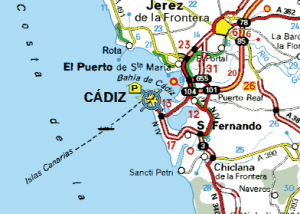Maxine Asher
Solàrion, Rob
Rob Solàrion (Robert Traylor Russell)(1942-2010) was from Dallas,  Texas and has written both on the Internet and in book form[556] on a number of subjects including, Planet X or Nibiru(a), Pole Shift, Apollonius of Tyana(g) and Atlantis.
Texas and has written both on the Internet and in book form[556] on a number of subjects including, Planet X or Nibiru(a), Pole Shift, Apollonius of Tyana(g) and Atlantis.
Although formerly a member of Maxine Asher’s group, as he developed his own theory of Polar Axial Displacement he came to be an ardent supporter of an Antarctic location for Atlantis.
His views on Atlantis in Antarctica, together with some caustic remarks about Asher(f) are available online.
Solàrion has written a commentary(e) on Andrew Tomas’ Atlantis book[348].
(a) https://www.bibliotecapleyades.net/hercolobus/planetX/planetX.htm
(b) https://www.bibliotecapleyades.net/hercolobus/planetX/planetX02.htm#Chapter 2
(e) https://www.bibliotecapleyades.net/esp_homegods01.htm
(f) https://www.bibliotecapleyades.net/cosmic_tree/atlantis.htm
(g) https://www.bibliotecapleyades.net/serpents_dragons/ancient_history2.htm
Horozco, Agustín de (L)
Agustín de Horozco was a 16th century Spanish historian who wrote a history of Cadiz in 1591. Maxine Asher has quoted from this work where Horozco describes Cadiz in ancient times being separated from the mainland by a deluge that was also responsible for the separation of Sicily from mainland Italy and destruction as far as Greece where the island of Euboea was cut off from Greece. He states that this inundation was accompanied by earthquakes and resulted in a great loss of life and land. If this account is reliable, it describes a cataclysm that affected the entire length of the Mediterranean and at least part of the Atlantic coast of Spain. It is reminiscent of Plato’s description of the catastrophe(s) that destroyed the armies of both Athens and Atlantis. Cadiz city council had Horozco’s work, Historia de la ciudad de Cádiz, reprinted in 1845[403], which is now available as a free ebook(a).
Cádiz
Cádiz is the modern name for ancient Gades considered the original kingdom of Gadeirus the twin brother of Atlas. However, the certainty normally associated with this accepted identification is weakened by the fact that quite a number of locations with similar-sounding names are to be found in the Central and Western Mediterranean regions.
A Map of Cadiz circa 1813 is shown on the right.
It has also been suggested that the name Cadiz came from Gadir, which in turn was derived from Kadesh!
 The Spanish historian, Adolfo Valencia wrote a history of Cádiz[0208], in which he suggested that Atlantis might have extended from Cádiz to Malta.
The Spanish historian, Adolfo Valencia wrote a history of Cádiz[0208], in which he suggested that Atlantis might have extended from Cádiz to Malta.
In 1973, Maxine Asher led an expedition to search for Atlantis off the coast of Cadiz, which despite claims of having discovered Plato’s Island, nothing verifiable was found(a). These claims received global press attention, enabling Asher to dine out on it for the rest of her fraudulent life.
It is generally accepted that the Phoenicians from Tyre founded Gadir, later to be known as Gades to the Romans. The Roman historian, Velleius Paterculus (c.19 BC – c.31 AD) wrote that Cadiz was founded 80 years after the Trojan War, circa 1100 BC. In the 9th century BC, the Phoenicians, under Princess Dido, founded a new capital at Carthage in North Africa. At Gades, the Phoenicians/Carthaginians built a temple to Melqart that had two columns that many consider to be the original Pillars of Hercules. In 2007, it was announced that excavations in the old town centre produced shards of Phoenician pottery and walls dated to the 8th century BC, probably making it the oldest inhabited city in Europe.
In early January 2022, “Archaeologists from the University of Seville and the Andalusian Institute of Historical Heritage claim to have discovered the lost Temple of Hercules Gaditanus. Using information they obtained from documentaries and aerial photographs, the researchers found a large rectangular structure submerged in the Bay of Cadiz. (b)
The structure, nearly 1,000 feet long, 500 feet wide, and matches the ancient descriptions of the temple, is only visible in low tide.”
In September 2023, the latest attempt to revive interest in a Spanish Atlantis was unveiled at a press conference in Chipiona, near Cádiz. The theme of the conference was the discovery of long underwater curved walls that some have claimed to match exactly Plato’s description of Atlantis.
Thorwald C. Franke(c) has more on the background to this effort to put the spotlight on the possibility of Atlantis being situated in this region of Spain which lies at the southern end of the Doñana Marshes that had received extensive investigation over the past couple of decades. The press conference was also used to announce the showing of a new documentary series by Michael Donnellan on October 8th in Cádiz.
Also See: Egadi Islands
(a) 1973 Atlantis Expedition (fourth-millennium.net)
(b) Spanish Archaeologists Claim to Have Discovered The Temple of Hercules (sputniknews.com)
Divine Retribution *
Divine Retribution is the explanation offered by Plato (Crit. 121c) for the destruction of Atlantis in a manner that for us is reminiscent of the biblical tale of Noah and many other flood stories. Some modern writers such as Maxine Asher have promoted this concept of godly reprisal. However, there is one important element missing from Plato’s narrative, namely, the salvation of a chosen few. The idea that the entire story of Atlantis was concocted by Plato as some form of parable is incompatible with the elimination of both (bad) Atlanteans AND (good) Athenians (Tim.25d). Consequently, if Plato was not relating some form of invented morality tale, we are entitled to reconsider the probability that he was transmitting a story with a core of historical truth.
The earthquake and tsunami of 1755 that destroyed Lisbon and which killed up to 100,000 people is just another example of how divine retribution has been invoked as the cause of the catastrophe. For those that accepted this explanation, all it did was consolidate the power of the church and its clergy. For me, the event was just an example of twisted divine humour, when people were killed in churches and synagogues while the red-light district was left virtually intact(f).
The idea of a god on a punishment spree arose more recently when both Christian(e) and Muslim(d) survivors attributed the tsunami disaster in the Indian Ocean on December 2004 to divine retribution for the wickedness of man. Similar comments were expressed following the 2015 earthquake in Nepal(g). This modern knee-jerk reaction may explain the inclusion of similar sentiments in so many ancient flood stories.
William Lauritzen is a leading advocate of Atlantis having been situated on the Sunda Shelf where Indonesia is located today. He provides a more rational explanation for the tsunami tragedy in a new eBook(a) where he explains that the unstable geology of the area which caused the recent tragedy also destroyed Atlantis.
The following year the devastation caused by Hurricane Katrina in New Orleans was once again credited to the whims of a bad-tempered divinity.
The 2010 earthquake in Haiti produced a further stream of ‘divine retribution’ claims, among which were those from American evangelist Pat Robertson, who attributed the cause to the ‘satanic’ voodoo beliefs of many Haitians and somewhat surprisingly from the well-known movie actor Danny Glover who claimed that the earthquake was god’s response to the failure of the 2009 climate change conference in Copenhagen!!!
Charles Pellegrino expressed it well, when he wrote in Return to Sodom and Gomorrah[821.120], “when an explanation is sought for evil events in a presumably just universe, history brands the people villains because they became victims, victims because they became villains.”
All these nonsensical claims demonstrate that god has either an appalling sense of justice, executing good and bad with equal vigour or, as is my personal belief, that he/she/it does not exist at all. Tectonic fault lines and their attendant hazards exist irrespective of the moral behaviour of people living in their vicinity. Similarly, hurricanes sweep into the Caribbean and the southern United States every year bringing death and destruction, not because the people in the area are inherently evil, but because particular meteorological conditions exist in the region that cyclically generate hurricanes.
It is fairly clear then that a fault line existed in the vicinity of Atlantis, a fact which should help to identify or at least eliminate some suggested locations. Coincidentally, a BBC documentary How the Earth Made Us, aired today, highlighted the fact that many of the most important ancient cities were sited near fault lines in order to exploit the mineral resources that are frequently to be found associated with them.
Another ‘prophecy of doom’, from the late V.M.Rabolú (1926-2000), is that a planet five or six times the size of Jupiter, is approaching earth to destroy it, because of mankind’s wickedness. Rabolú claims to have travelled in his Astral Body to Venus and Mars and witnessed the inhabitants of those planets. He also points to the destruction of Atlantis being the result of the greed of its inhabitants. All this and more drivel is available in a free booklet, written by Rabolú, from the Alcione Association(b).
The concept of divine retribution was given a further twist in January 2014 when a British politician and member of UKIP, David Silvester, claimed(c) that the recent severe flooding in his country was a consequence of the same-sex marriage policy of the British government. Rain in Ireland seems a little heavier lately, following the referendum vote here in favour of same-sex marriage!
My final comment is a reflection on the fact that many western legal systems incorporate the concept of divine intervention with the use of the term ‘Act of God’ to describe catastrophic natural events leading to loss of life or property. Is it not time that such happenings be more accurately redefined as ‘natural but unanticipated’.
In February 2016 a paper was published(h) in Nature magazine with the interesting title of “ Moralistic gods, supernatural punishment and the expansion of human sociality”.
(a) www.earth360.com.
(b) https://www.hercolubus.tv#mantras
(d) https://english.pravda.ru/society/stories/13-01-2005/7593-0/
(e) Wayback Machine (archive.org) *
(g) https://sensuouscurmudgeon.wordpress.com/2015/05/01/ken-ham-nepal-earthquake-caused-by-sin/
(h) https://www.sciencenews.org/article/rise-human-civilization-tied-belief-punitive-gods

